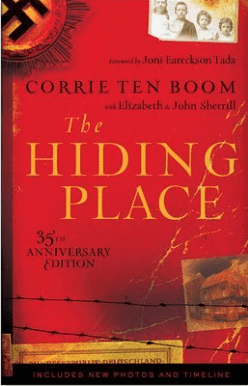A Reflection on the Consolation of Sacred Scripture
by Nicki Johnston
When the public celebration of Mass was suspended because of COVID, we informed our four young boys that we would be watching Mass online for a while. My four-year old looked up at me with his big blue eyes and asked, “But Mama, how will you receive Jesus?”
His simple question touched my heart and articulated my exact sentiment. What would I do without the Sacraments?
To my great surprise, during those weeks without Mass the Holy Spirit offered me unexpected consolation through Sacred Scripture, particularly in the Psalms.
Months later, after returning to Mass along with my course for Catechesis of the Good Shepherd, I was reminded that written Scripture originated when the Israelites were in exile, unable to worship in the Temple.
In Catechesis of the Good Shepherd (CGS), we spend each Advent meditating on the words of the prophets. With the very youngest children, we simply offer the definition of a prophet as someone who listens to God with his whole heart, and we proclaim the words of the prophet Isaiah, “The people who dwell in darkness have seen a great light” (Isaiah 9:2) Then, as the children get older, we place the prophets and their words into the context of salvation history and consider how God uses the prophets to console His people, even in the darkest of times.

It was through my CGS formation course that I learned that written Scripture originated when the Israelites were in the midst of one of their darkest times, during their exile from Jerusalem when they were unable to worship in the Temple. Sofia Cavalletti, in History of the Kingdom of God 2, writes, “From the time of Babylonian exile, a new spirituality developed in Israel whose hinge, or turning point, was the Torah […] After the exile, being deprived of its Temple, Israel centered its religious life on the Torah and the human person’s response to it, namely, prayer.”
Before COVID, this was missing. I had studied Scripture – on my own, with Bible Study groups and with my children – but only intellectually. I had not grown in my capacity to be affected by Scripture, nor had I truly responded to it through prayer. It wasn’t until I was deprived of the Holy Mass that I learned to do just that.

Around this same time, we read The Hiding Place by Corrie ten Boom for Well-Read Mom’s Year of the Sister. In my reading, I marveled that Corrie never had this problem. Her devotion to Sacred Scripture struck me as one of the most profound parts of The Hiding Place. Of course Corrie’s Protestant upbringing was different than mine as a Catholic, and so it was insightful to read this book about a devout family whose faith completely hinged on the Word of God.
Corrie was raised in a house rich in devotion to Scripture. She listened to her father read aloud from the Holy Bible each morning and night, evangelizing all those around him. Each of the ten Boom children grew up with a tremendous reverence for God’s Word and this nourished Corrie throughout her life, most significantly during her time of suffering at the hands of the Nazis.
During this period of suffering, her longing for a Holy Bible moved me as I read her story. The risks she took in order to have one with her in prison and at Ravensbruck were extraordinary. I couldn’t imagine taking that same risk myself, though I could imagine risking just about anything for a chance to confess my sins to a priest or to receive Holy Eucharist. Still, I know that God is present in both the Sacraments and in Scripture. I am grateful for the gift of his presence to me in both and I pray that, like Corrie, I never take for granted the Word of God.
As we enter this Advent season, may we know the tremendous power of the Holy Bible, be filled with reverence for God’s Word, and nourished by the inspiration of the Holy Family as we journey with them to the lowly stable to welcome the Word made flesh.
